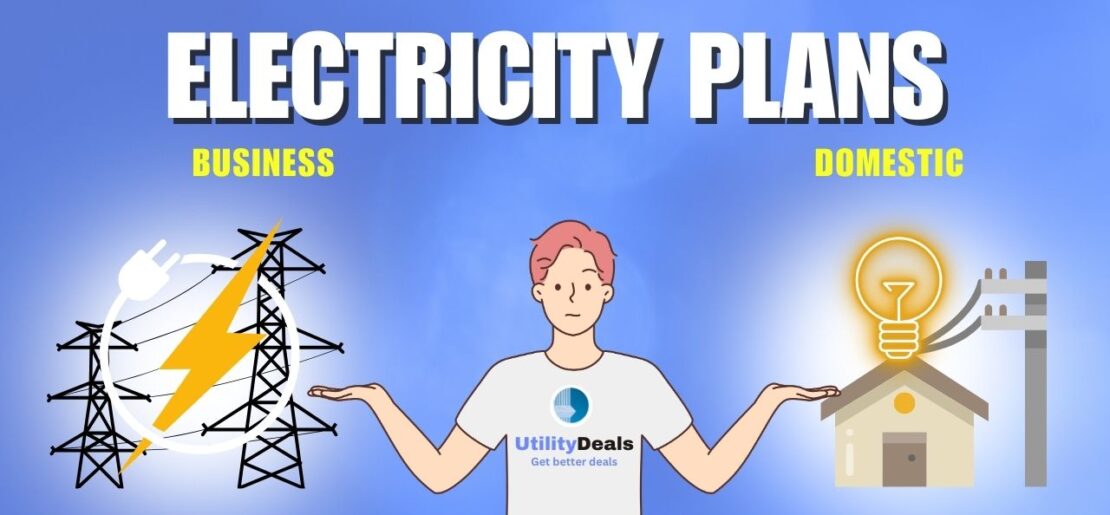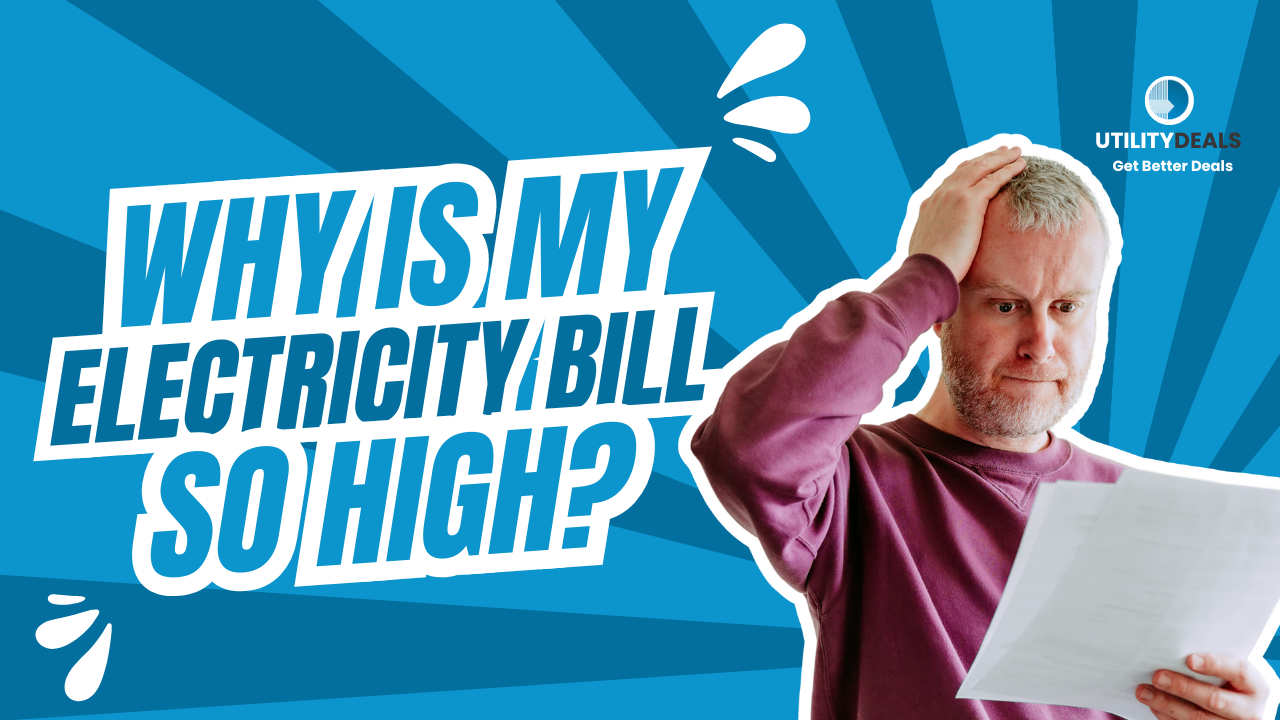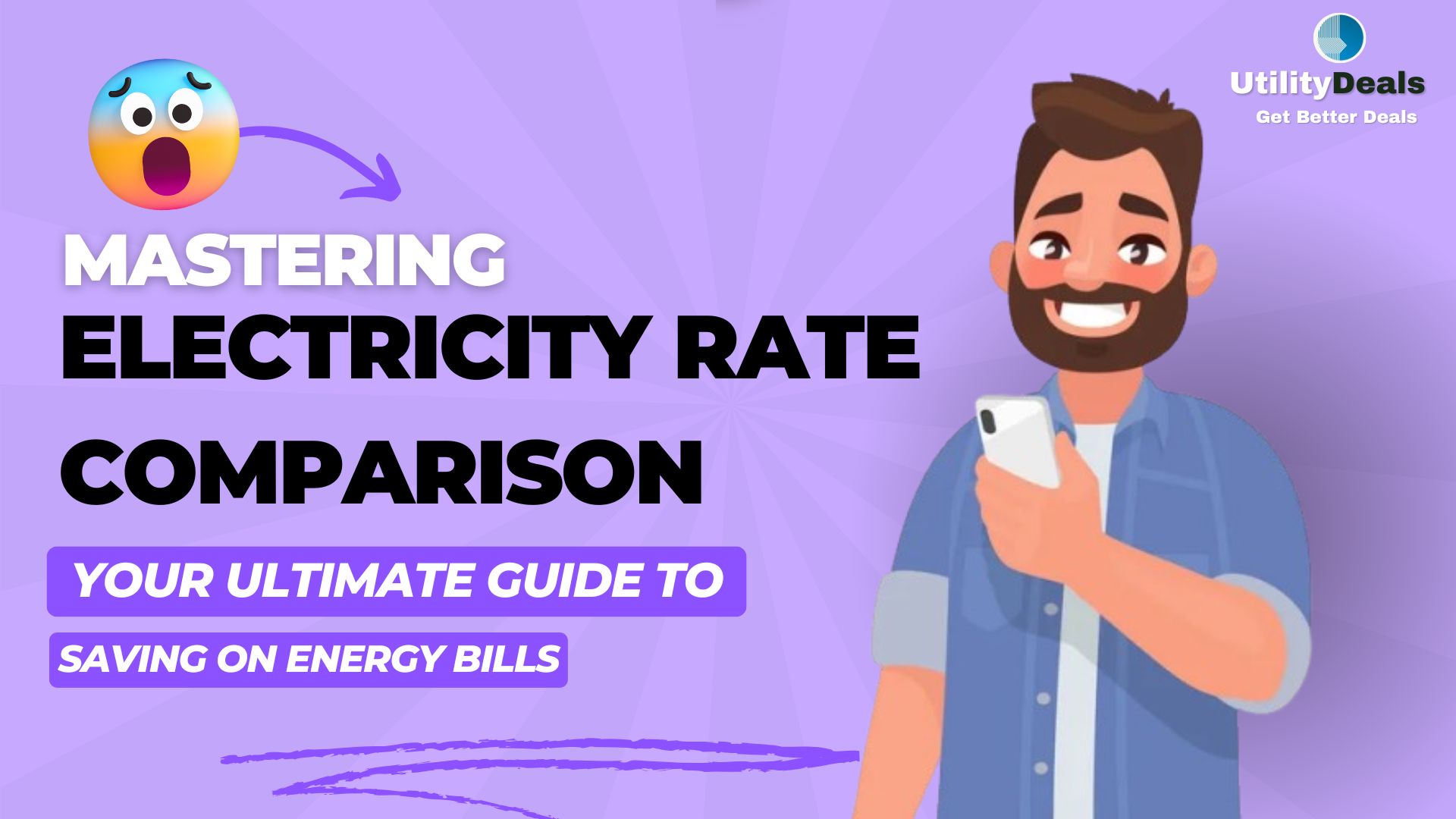
Business vs. Domestic Electricity Plans: Understanding the Key Differences
At UtilityDeals, we often encounter customers who assume business and domestic electricity plans are nearly identical. However, these two types of plans have significant differences, tailored to meet distinct needs and operational conditions. Understanding these differences is crucial for both businesses and homeowners to make informed decisions and potentially save on energy costs.
1. Pricing Structures
Domestic Plans:
- Generally simpler pricing models
- Often feature flat rates per kilowatt-hour (kWh)
- May include tiered pricing based on usage levels
Business Plans:
- More complex pricing structures
- Can include time-of-use rates, encouraging off-peak usage
- Often incorporate demand charges based on peak consumption
- May offer seasonal pricing variations
2. Contract Length and Flexibility
Domestic Plans:
- Typically shorter contracts (month-to-month or 1-2 years)
- Greater flexibility for moving or switching providers
Business Plans:
- Longer contracts, often 3-5 years or more
- Provide cost certainty and protection against market fluctuations
- May offer custom rates based on specific business needs
3. Usage Patterns and Load Profiles
Domestic Plans:
- Designed for relatively stable usage patterns
- Peak usage often in mornings and evenings
Business Plans:
- Accommodate higher and more variable consumption
- Tailored to specific industry needs (e.g., 24/7 operations, weekday-heavy usage)
4. Metering and Monitoring
Domestic Plans:
- Standard meters or basic smart meters
- Basic usage tracking
Business Plans:
- Advanced metering infrastructure (AMI)
- Detailed consumption data and analytics
- Support for demand response programs
5. Additional Services and Incentives
Domestic Plans:
- Basic incentives like free nights/weekends
- Some energy efficiency programs
Business Plans:
- Comprehensive energy audits
- Power factor correction services
- Custom energy efficiency solutions
- Robust renewable energy options
6. Regulatory Compliance
Domestic Plans:
- Basic safety and fair pricing regulations
Business Plans:
- Complex regulatory landscape
- Industry-specific compliance requirements
- Environmental and emissions standards
7. Risk Management
Domestic Plans:
- Limited options, mainly fixed-rate plans
Business Plans:
- Sophisticated hedging strategies
- Options for locking in long-term rates
8. Volume Discounts
Domestic Plans:
- Generally not available due to lower consumption
Business Plans:
- Significant discounts for high-volume users
- Negotiable rates for large consumers
9. Customer Service
Domestic Plans:
- Standard customer support channels
Business Plans:
- Dedicated account managers
- Personalized support and optimization services
Conclusion
At UtilityDeals, we recognize that choosing the right electricity plan is crucial for both businesses and homeowners. Business plans offer more complexity and customization, catering to higher consumption and specific operational needs. They provide opportunities for significant cost savings through tailored pricing, advanced monitoring, and volume discounts.
Domestic plans, while simpler, offer the flexibility and affordability needed for residential use. By understanding these differences, our customers can make informed decisions that optimize their energy use and reduce costs.
Whether you’re a business owner looking to streamline your energy expenses or a homeowner seeking the best residential plan, UtilityDeals is here to help you navigate these options and find the perfect fit for your needs.









